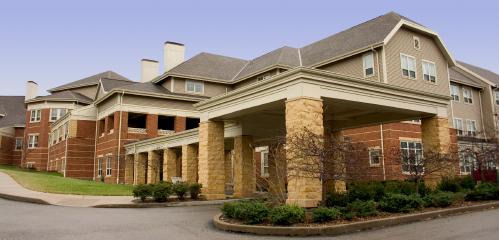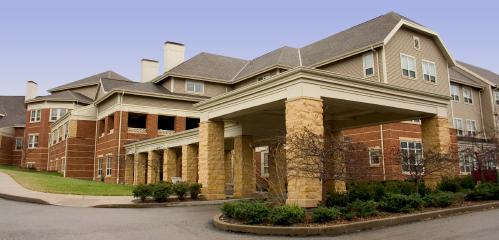Nursing Care Home Insurance: Medical Care Facility Protection
Nursing care homes providing medical care services face complex risks that extend far beyond standard residential care facilities. These specialized environments require comprehensive insurance coverage that addresses medical treatment risks, clinical negligence exposure, pharmaceutical management, and the unique challenges of caring for residents with complex medical needs and conditions.
Understanding Medical Care Nursing Homes
Medical care nursing homes provide specialized services that create unique insurance requirements:
- Clinical Care Services: Medical treatment, medication management, and clinical procedures
- Specialized Staff: Registered nurses, healthcare assistants, and medical professionals
- Complex Residents: Individuals with multiple medical conditions and care needs
- Medical Equipment: Specialized medical devices and monitoring equipment
- Pharmaceutical Management: Controlled drug storage and administration
- Regulatory Compliance: CQC registration and healthcare regulations
Unique Risks in Medical Care Facilities
Clinical Negligence and Medical Malpractice
Medical care provision creates significant liability exposures:
- Medication errors and adverse drug reactions
- Misdiagnosis or delayed diagnosis of conditions
- Inappropriate treatment or care decisions
- Failure to monitor or respond to medical emergencies
- Inadequate clinical assessment and care planning
- Breach of clinical protocols and procedures
Pharmaceutical and Medication Risks
Drug management presents complex challenges:
- Controlled drug storage and security breaches
- Medication administration errors and omissions
- Drug interaction and contraindication issues
- Prescription fraud and theft
- Expired or contaminated medication use
- Unlicensed or inappropriate drug administration
Medical Equipment and Device Risks
Specialized equipment creates operational hazards:
- Equipment malfunction and failure
- Inadequate maintenance and calibration
- Operator error and improper use
- Electrical safety and fire hazards
- Data security and patient privacy breaches
- Equipment contamination and infection control
Infection Control and Healthcare-Associated Infections
Medical environments increase infection risks:
- Healthcare-associated infection outbreaks
- Antimicrobial-resistant organism transmission
- Inadequate infection prevention and control
- Cross-contamination between residents
- Staff-to-resident infection transmission
- Environmental contamination and cleaning failures
Essential Insurance Coverage for Medical Care Homes
Professional Indemnity Insurance
Critical protection for clinical care provision:
- Clinical negligence and malpractice claims
- Medication error and adverse reaction claims
- Misdiagnosis and treatment failure claims
- Breach of duty of care allegations
- Regulatory investigation and defense costs
- Minimum £6 million coverage recommended
Public and Products Liability Insurance
Comprehensive third-party protection:
- Resident injury and accident claims
- Visitor and contractor injury protection
- Property damage and third-party losses
- Product liability for medical devices and equipment
- Food poisoning and contamination claims
- Minimum £5 million coverage recommended
Employers Liability Insurance
Mandatory protection for healthcare staff:
- Workplace injury and accident coverage
- Occupational illness and disease protection
- Needlestick injuries and blood-borne pathogen exposure
- Manual handling and musculoskeletal injuries
- Stress-related illness and mental health claims
- Minimum £5 million coverage required by law
Cyber and Data Protection Insurance
Protection for sensitive medical data:
- Patient medical record breaches
- Healthcare system cyber attacks
- GDPR compliance and data protection fines
- Ransomware and system disruption
- Third-party data sharing breaches
- Business interruption from cyber incidents
Business Interruption Insurance
Coverage for operational disruptions:
- Regulatory closure and license suspension
- Infection outbreak and quarantine measures
- Equipment failure and system breakdowns
- Staff shortage and key person absence
- Utility failure and infrastructure damage
- Alternative accommodation and relocation costs
Specialized Medical Care Services
Dementia and Alzheimer's Care
Specialized dementia care creates unique risks:
- Wandering and elopement incidents
- Behavioral and psychological symptoms management
- Medication compliance and administration challenges
- Falls and injury prevention in confused residents
- Family communication and consent issues
- Specialized staff training and competency requirements
End-of-Life and Palliative Care
Palliative care services require specialized coverage:
- Pain management and symptom control
- Family support and bereavement services
- Advance directive and end-of-life decision making
- Controlled drug management for pain relief
- Spiritual and emotional care provision
- Death certification and post-mortem procedures
Rehabilitation and Recovery Services
Rehabilitation programs create additional exposures:
- Physical therapy and mobility assistance
- Occupational therapy and daily living skills
- Speech and language therapy services
- Discharge planning and community transition
- Equipment and assistive technology provision
- Progress monitoring and outcome measurement
Mental Health and Behavioral Care
Mental health services require specialized protection:
- Psychiatric assessment and treatment
- Behavioral intervention and management
- Medication management for mental health conditions
- Risk assessment and safety planning
- Family and carer support services
- Crisis intervention and emergency response
Regulatory Compliance and Standards
Care Quality Commission (CQC) Requirements
CQC registration and compliance create ongoing obligations:
- Registration conditions and compliance monitoring
- Inspection preparation and response
- Quality improvement and action plan implementation
- Notification requirements and incident reporting
- Staff qualification and training compliance
- Enforcement action and regulatory sanctions
Clinical Governance and Quality Assurance
Clinical governance frameworks ensure quality care:
- Clinical audit and quality improvement
- Risk management and incident analysis
- Clinical supervision and professional development
- Evidence-based practice and clinical guidelines
- Patient safety and quality indicators
- Continuous improvement and learning culture
Medicines Management and Controlled Drugs
Pharmaceutical regulations require strict compliance:
- Controlled drug storage and security requirements
- Prescription management and administration records
- Pharmacist involvement and clinical review
- Medication error reporting and investigation
- Staff competency and training requirements
- Audit and inspection compliance
Staffing and Human Resources
Clinical Staff Requirements
Medical care homes require specialized healthcare professionals:
- Registered nurses and clinical specialists
- Healthcare assistants and support workers
- Medical practitioners and visiting consultants
- Allied health professionals and therapists
- Pharmacy and medication management staff
- Clinical governance and quality assurance roles
Staff Training and Competency
Comprehensive training programs ensure safe care delivery:
- Clinical skills and competency assessment
- Medication administration and management training
- Infection prevention and control education
- Emergency response and resuscitation training
- Safeguarding and protection procedures
- Continuing professional development requirements
Recruitment and Retention Challenges
Healthcare staffing creates ongoing challenges:
- Skilled staff shortage and recruitment difficulties
- High turnover and retention issues
- Agency and temporary staff dependency
- Qualification verification and background checks
- Professional registration and revalidation
- Competitive salary and benefit packages
Technology and Medical Equipment
Medical Device Management
Specialized equipment requires comprehensive management:
- Equipment procurement and installation
- Maintenance and calibration programs
- User training and competency assessment
- Incident reporting and investigation
- Replacement and upgrade planning
- Regulatory compliance and safety standards
Electronic Health Records and Information Systems
Digital systems support clinical care delivery:
- Electronic patient records and care planning
- Medication administration and monitoring systems
- Clinical decision support and alerts
- Data security and privacy protection
- System integration and interoperability
- Backup and disaster recovery procedures
Telehealth and Remote Monitoring
Technology enables enhanced care delivery:
- Remote patient monitoring and vital signs
- Telemedicine consultations and specialist access
- Family communication and virtual visiting
- Clinical support and decision making
- Emergency response and alert systems
- Data transmission and security protocols
Financial Management and Sustainability
Funding and Revenue Streams
Medical care homes operate complex financial models:
- NHS continuing healthcare funding
- Local authority placement and top-up fees
- Private fee-paying residents
- Specialist service contracts and agreements
- Insurance and compensation claims
- Grant funding and charitable donations
Cost Management and Control
Effective cost management ensures sustainability:
- Staffing costs and skill mix optimization
- Medical equipment and technology investments
- Pharmaceutical and clinical supply costs
- Insurance premiums and risk management
- Regulatory compliance and quality assurance
- Facility maintenance and improvement
Business Continuity and Resilience
Robust planning ensures service continuity:
- Emergency response and crisis management
- Staff shortage and absence planning
- Equipment failure and backup procedures
- Supply chain disruption and alternatives
- Financial contingency and reserve planning
- Regulatory compliance and enforcement response
Quality Assurance and Improvement
Clinical Audit and Monitoring
Regular monitoring ensures quality care delivery:
- Clinical outcome measurement and analysis
- Patient safety indicators and benchmarking
- Infection control and prevention monitoring
- Medication management and error analysis
- Staff competency and performance review
- Resident and family satisfaction surveys
Continuous Improvement Programs
Systematic improvement drives quality enhancement:
- Quality improvement projects and initiatives
- Best practice implementation and sharing
- Staff feedback and suggestion programs
- Resident and family involvement in improvement
- External benchmarking and comparison
- Innovation and technology adoption
- Learning from incidents and near misses
External Quality Assurance
Independent oversight ensures standards compliance:
- CQC inspections and regulatory reviews
- Clinical commissioning group monitoring
- Professional body assessments and accreditation
- Independent clinical audits and reviews
- Peer review and professional networks
- External quality improvement support
Emergency Preparedness and Response
Medical Emergency Procedures
Comprehensive emergency response protocols:
- Cardiac arrest and resuscitation procedures
- Medical emergency assessment and response
- Ambulance service liaison and handover
- Family notification and communication
- Documentation and incident reporting
- Post-incident review and learning
Infection Outbreak Management
Systematic approach to infection control emergencies:
- Outbreak identification and investigation
- Isolation and containment measures
- Public Health England notification
- Staff and visitor restriction protocols
- Enhanced cleaning and disinfection
- Recovery and prevention planning
Business Continuity Planning
Comprehensive planning ensures service continuation:
- Alternative accommodation and relocation
- Staff redeployment and resource allocation
- Essential service maintenance
- Communication and stakeholder management
- Financial contingency and support
- Recovery and restoration procedures
Claims Management and Risk Mitigation
Incident Response and Investigation
Effective incident management protects residents and business:
- Immediate response and resident safety
- Incident documentation and evidence preservation
- Insurance notification and claim initiation
- Regulatory reporting and compliance
- Family communication and support
- Investigation and root cause analysis
Legal and Regulatory Defense
Professional support for legal challenges:
- Clinical negligence claim defense
- Regulatory investigation support
- Coroner's inquest representation
- Employment tribunal and HR disputes
- Contract and commercial disputes
- Professional indemnity claim management
Risk Prevention and Mitigation
Proactive risk management reduces exposure:
- Comprehensive risk assessment and management
- Staff training and competency development
- Policy and procedure implementation
- Equipment maintenance and safety programs
- Quality assurance and monitoring systems
- Continuous improvement and learning
Choosing the Right Medical Care Home Insurance
When selecting nursing care home insurance for medical facilities, consider:
- Healthcare Expertise: Providers with medical care facility experience
- Comprehensive Coverage: All aspects of medical care provision
- Adequate Limits: Sufficient coverage for clinical negligence exposure
- Risk Management Support: Guidance on clinical risk reduction
- Claims Experience: Proven track record with healthcare claims
- Regulatory Knowledge: Understanding of healthcare compliance requirements
Best Practices for Medical Care Home Insurance
Effective insurance management for medical care facilities:
- Regular coverage review and limit assessment
- Comprehensive risk assessment and management
- Staff training and competency development
- Incident reporting and investigation procedures
- Quality assurance and clinical governance
- Emergency preparedness and response planning
- Regulatory compliance and monitoring
- Continuous improvement and learning culture
Protecting Medical Care Excellence
Nursing care homes providing medical care services operate in one of the most complex and regulated healthcare environments. The combination of vulnerable residents, clinical care provision, and regulatory oversight creates unique insurance challenges that require specialized coverage and expert risk management.
Success in medical care home operations depends on balancing clinical excellence with comprehensive risk protection. The right insurance coverage provides the foundation for confident care delivery while protecting against the significant exposures inherent in medical care provision.
Don't compromise on insurance coverage for your medical care facility. Comprehensive protection ensures you can focus on delivering excellent clinical care while safeguarding your business, staff, and residents against the complex risks of medical care provision.


 0330 127 2333
0330 127 2333





























